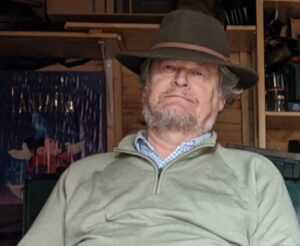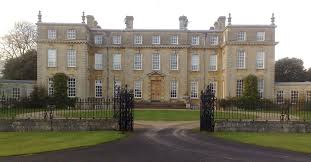9 July 2020
Go, Go, Gove
by J.R.Thomas
 “If a wishy-washy Lib Dem Remainer is impressed by what a Tory Brexiteer is saying…”. That would be too rude a way to start a piece in the polite folds of the Shaw Sheet; yet, and yet, it is so true. One of my colleagues read Michael Gove’s thoughts to the Ditchley Foundation two weeks ago, and was impressed. Just as impressed as this libertarian leaning, small government, Brexiteer. So what is going on?
“If a wishy-washy Lib Dem Remainer is impressed by what a Tory Brexiteer is saying…”. That would be too rude a way to start a piece in the polite folds of the Shaw Sheet; yet, and yet, it is so true. One of my colleagues read Michael Gove’s thoughts to the Ditchley Foundation two weeks ago, and was impressed. Just as impressed as this libertarian leaning, small government, Brexiteer. So what is going on?
Or, really the first question is, what is Mr Gove up to? We know his history; his rise to cabinet rank; the Brexit campaign, his disastrous attempted putsch against Boris in the 2016 Conservative leadership campaign; his exile to the back benches, his return as Environment Secretary in 2017. He lost to Boris in the 2019 leadership campaign to replace Theresa May, was rewarded with the Chancellorship of the Duchy of Lancaster, and special responsibilities for the cabinet office. Rehabilitation complete, you might say, though Mr Gove still has the slightly nervous look of a man who pushes doors right open before going through them and tests squeaky floorboards twice before trusting them.
Does Boris trust Michael? Would you, after the events of summer 2016? Does Boris need Michael? Yes. He certainly needs a Michael, the senior ranks of the Tory Party are depressingly devoid of great thinkers and constructive brooders. Mr Gove is the only one that would immediately spring to mind in the current cabinet and there are not many at lower levels. For that the blame must fall heavily and squarely on D. Cameron and T. May, two Conservative leaders who had a deep distrust of h’intellectuals and thinkers oh mi gawd.
As a result the Tories are bereft of ideas, of originality, of a philosophy to underpin their policies. That enabled Mr Corbyn to capture the battle of ideas, and created a wide miasma that says big government is good, more government is better, high taxation is the solution whatever the problem. Remember that Mrs Thatcher’s first actions on winning the Tory leadership in 1975 from Ted Heath (another Conservative leader who distrusted ideas and thinkers) was to establish a whole network of think-tanks and research groups to make the case for the political ideas that the Lady’s instincts – very un-Tory in many ways – told her were the cure for the terrible ills of the then sick man of Europe. Boris is no great original thinker, but he appreciates that winning electoral battles is only a quarter of winning the philosophical war. Whether he has encouraged Mr Gove to engage his brain in fast forward; or whether Mr G has taken on this role for himself, with a view to future leadership battles; whether he is the Keith Joseph of our times or the pending Margaret Thatcher; only time will tell.
But Gove is certainly doing something remarkable. He is thinking aloud, about new ideas and new solutions, new Conservative ways of doing things. His Ditchley speech seems to have been the launch of some of those thoughts, and also of giving notice that thinking is now to be done, and that Michael will be leading it.
Ditchley is a large and beautiful house in Oxfordshire which was gifted and generously endowed by the Wills family to make a discrete home for debate on democracy and government. Here serious and intelligent thinkers gather to address some of the philosophical issues and difficulties which beset the world. It is a low key and secure environment in which ideas can be carefully inflated and freed from their moorings to float across the world.
Mr Gove’s speech was very much in that tradition. It gave him the opportunity to step back from the everyday and think aloud. The result has had more media publicity than Ditchley addresses usually get. His speech, entitled “The Privilege of Public Service”, shows all the signs of personal and careful crafting over some considerable period; we urge our readers to read it themselves; it is not often that politicians so freely bare their inner broodings (available currently at https://www.gov.uk/government/speeches/the-privilege-of-public-service-given-as-the-ditchley-annual-lecture ).
Gove talks in depth about politics in a time of turmoil, in periods when the usual broad acceptance of political philosophies breaks down, when many norms are questioned and then attacked. We have, as he says, been here before, in modern times. He broods on leadership and particularly cites the example of Franklin D. Roosevelt as a strong popular leader who was able to secure public acceptance for his programmes, who instigated new ideas and thinking, who was not frightened to try new approaches – even though they quite often turned out not to work. To secure the continuing benefits and blessings of freedom, democracy, and free enterprise FDR knew that things had to be changed, to be shaken up, sometimes quite violently. Gove too recognises that things have to change in the modern UK. Government – by which he means not just politicians, but the whole machinery of thinking, creating, and delivering – has become completely out of touch with those it is supposed to serve. In much of the population, and in many areas, politics and public servants are regarded with hostility and contempt. That, says Gove, won’t do. Government and the civil service must get nearer to the people they serve, both philosophically and literally. Whitehall must move northwards. And shrink, become smaller and much more effective, to serve the people it will be amongst.
There is quite a lot of fulsome praise of our Prime Minister – who either is the crusading genius a hardcore of supporters still believe him to be, or really does balance buckets of water on semi-open doors and loosen floorboards in the cabinet office. But then, if you want to get and keep control of new agendas, it is well to keep in with the man who controls the largesse that enables the new. Boris is not just a gifted classicist but also an historian. He knows that capturing some of the ideas of the opposition does not disarm them, but merely drags you slowly in their direction – whilst subliminally convincing electors that it is the opposition’s beliefs and policies which are the right ones. His determination to keep Dominic Cummings shows how determined he is to create and push through great reform, wrestling the political initiative back from the collectivist tendencies of recent times. And his setting Gove free, to such a forum as Ditchley, is not just about keeping his enemies close. It is all to do with the struggle of ideas and approaches. Both Boris and Michael know that some of the most plangent opposition to what they want to do will not be opposite them, it will be behind them, in those traditionalist conservative Conservatives on the back benches.
The Tory surge in last year’s election in those Labour midland and northern seats was not so much anti-Corbyn as anti-establishment – that new soft left Islington domiciled wealthy middle class establishment that could not find its way to Burnley or Pudsey even if given a white transit and a full tank of diesel. Boris can detect that the public mood has a radicalism about it, an appetite for change. It is Gove’s job to harness that restlessness and make it a force for Tory renewal. Ditchley marked the first bold step in that. It will not be the last. And if it has attracted some wishy-washy LibDem approbation it is off to a good start.


